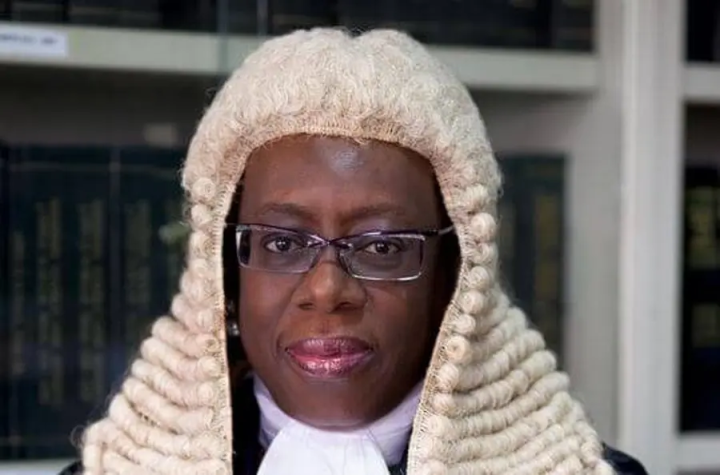The newly confirmed Chief Justice of Nigeria (CJN), Hon. Justice Kudirat Kekere-Ekun, has issued a stern warning to judicial officers, cautioning that corruption, frivolous ex-parte orders, and interim injunctions will not be tolerated under her leadership.
Speaking before the Senate during her confirmation screening at the National Assembly on Wednesday, Kekere-Ekun emphasised her commitment to upholding the rule of law and preserving the integrity of the judiciary.
She stated, “Integrity and zero tolerance for corruption are some of the things I’m known for.

Under my leadership, the judiciary will not be associated with corruption, nor with the granting of frivolous ex-parte orders or interim injunctions.
Decisive actions will be taken against any officer found indulging in such practices.”
Justice Kekere-Ekun also expressed concern about the abuse of ex-parte orders and interim injunctions by some judges, warning that any such abuses would be met with sanctions during her tenure.
In addition to judicial officers, the new CJN directed her attention to lawyers, particularly senior ones, who make declarative or authoritative statements about cases pending in court.
She noted that such actions would be addressed, especially when committed in the media.
“Decisive actions will no doubt be taken against those fond of making declarative or authoritative comments on cases pending in the courts of law,” she warned, adding that she would use her role as chairman of the Legal Practitioners Privileges Committee to deal with such conduct.
During the screening, Kekere-Ekun also addressed the issue of case congestion at the Supreme Court.
She called on the Senate and the National Assembly to amend the Electoral Act 2022 to allow pre-election matters to terminate at the Court of Appeal, which would help reduce the burden on the apex court.
On the issue of conflicting court judgments, the CJN proposed the digitalisation of courts across the country as a solution.
She explained that digitalisation would help track cases and prevent inconsistent rulings, noting that “digitalisation of all courts would help to track cases already treated by the various courts and prevent conflicting judgments.”
Additionally, Kekere-Ekun emphasised the need for Alternative Dispute Resolution (ADR) mechanisms to help decongest cases in the judiciary, stating that ADR offers a more amicable solution than the traditional victor and vanquished approach of litigation.
When responding to a suggestion by Senator Sani Musa (APC, Niger East) that separate courts be created for election matters and terrorism, Justice Kekere-Ekun disagreed, pointing out that such courts would eventually face congestion unless the digitalisation of courts nationwide was prioritised.
Following her remarks, the Senate confirmed Kekere-Ekun as the second female Chief Justice of Nigeria after approximately two hours of screening.
Her confirmation comes a day after President Bola Tinubu wrote to the Senate, seeking approval of her nomination.
In the letter, President Tinubu cited Section 231(1) of the Nigerian Constitution, which empowers him to appoint the CJN based on recommendations from the National Judicial Council (NJC) and subject to Senate approval.
The NJC had recommended Justice Kekere-Ekun, 66, as a successor to former CJN Justice Olukayode Ariwoola, who retired in August.
President Tinubu expressed confidence in her abilities and urged the Senate to expedite her confirmation.
With her confirmation now official, Kekere-Ekun takes the helm of Nigeria’s judiciary, bringing with her a reputation for integrity and a commitment to ensuring the judiciary remains free from corruption and misconduct.
Support InfoStride News' Credible Journalism: Only credible journalism can guarantee a fair, accountable and transparent society, including democracy and government. It involves a lot of efforts and money. We need your support. Click here to Donate
